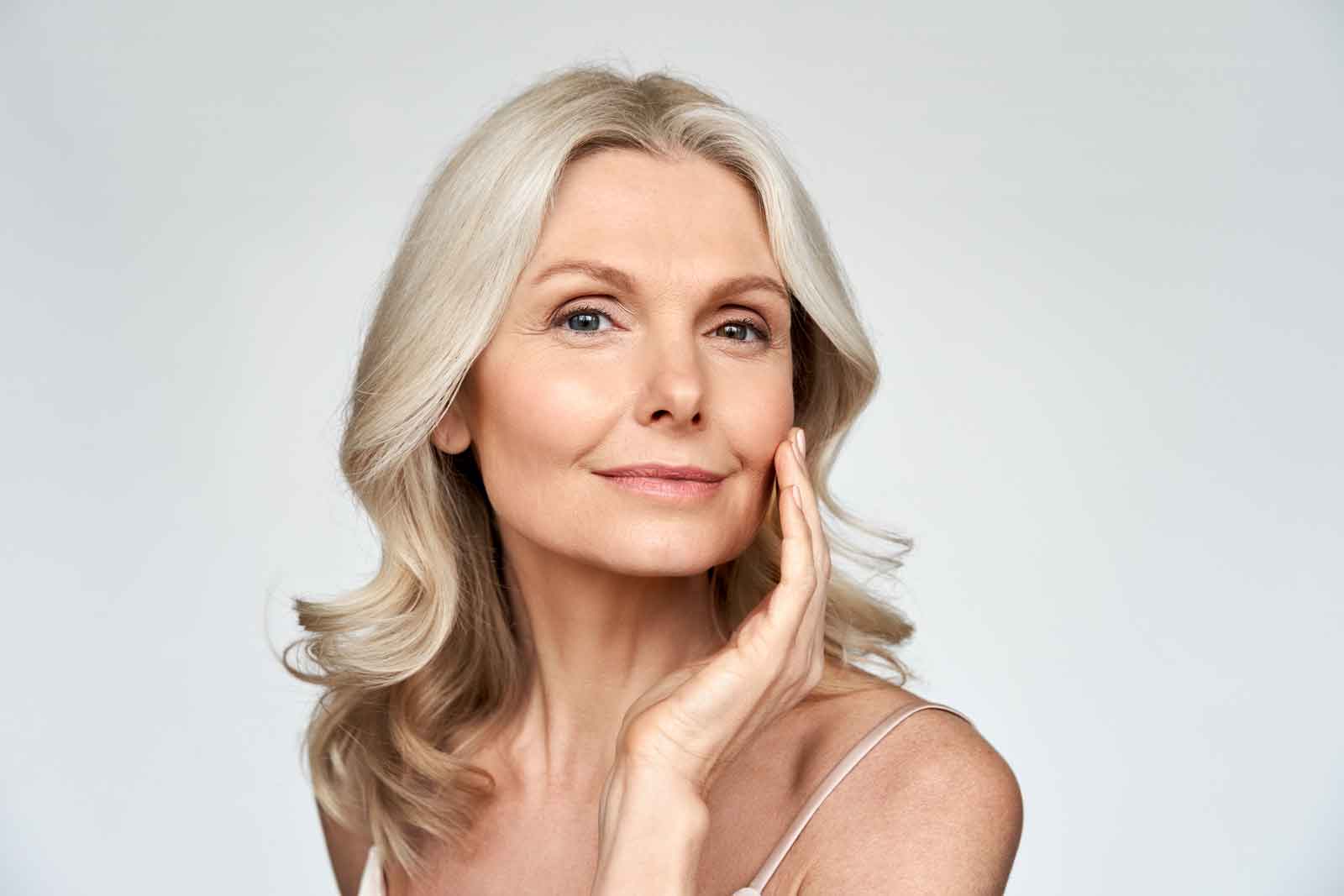How the reduction of collagen affect skin ageing?

From the mid-20s onwards, the the body's natural production of collagen and elastin will decrease, and the collagen fibres become weaker.
The structure of the skin changes, resulting in weaker and thinner skin, and a drier and less elastic skin. This manifests itself in the form of fine lines and wrinkles, and it can affect the body's connective tissues that provide stability and flexibility (2, 3).
Production cells, called fibroblasts, constantly produce procollagen and in this way compensate for the degradation of the collagen fibres so that the balance is maintained.
The procollagen is further transformed and twisted together into strong and flexible collagen fibres. (1, 4) In addition collagen fibres have a good ability to ability to bind water, which also contributes to that the skin's surface is kept plump, smooth and elastic. (3)
It is believed that we lose collagen at a rate of rate of 1.5 per cent per year, which means a 30 % loss of collagen by the age of 45 years of age.(1)
The table below shows how a reduction in collagen fibre effects skin ageing.
Skin aging and developent of collagen levels

Around the age of 35 years of age we see a dense and firm structure between the collagen fibres, elastin and hyaluronic acid. As we get older as we get older, we see that this firm and dense structure becomes weaker and shows up as wrinkles.
This change continues over the years and the wrinkles will become more prominent.
Sources:
1. Sibilla, S., Godfrey, M., Brewer, S., Budh-Raja, A., Genovese, L. (2015). An overview of the beneficial effects of hydrolysed collagen as a neutraceutical on skin properties: scientific background and clinical studies. The Open Nutraceutical Journal 8, 29-42.
2. Asserin, Jérome, et al. “The effect of oral collagen peptide supplementation on skin moisture and the dermal collagen network: evidence from an ex vivo model and randomized, placebo-controlled clinical trials.” Journal of cosmetic dermatology 14.4 (2015): 291-301.
3. Proksch, E., et al. “Oral intake of specific bioactive collagen peptides reduces skin wrinkles and increases dermal matrix synthesis.” Skin pharmacology and physiology 27.3 (2014): 113-119.
4. Varani, James, et al. “Decreased collagen production in chronologically aged skin: roles of age-dependent alteration in fibroblast function and defective mechanical stimulation.” The American journal of pathology 168.6 (2006): 1861-1868.






Leave a comment